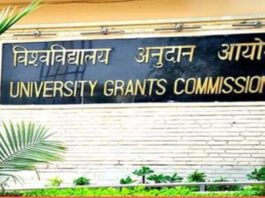6 Misconceptions about Asexuality
Asexuality in proper biological terms is ‘the lack of sexual attraction to anyone, or low or absent interest in sexual activity’. It is distinct...
Join AIESEC in Delhi IIT Today
What is AIESEC all about?
AIESEC is the world’s largest youth run organization. This international organization is currently present in over 127 countries empowering young...
UNILEVER –KODAIKANAL FEUD
Mercury is a category of toxins that are persistent in the environment and can cross the
placental barrier protecting the fetus from the mother’s poisons, travel long distances on
atmospheric currents and build up to lethal levels as they travel up the food chains. The
thermometer factory of Kodaikanal originally operated from Watertown ,New York on the
banks of the Black River.However, high accumulation of mercury levels,according to the
2009 study ok Lake Ontario’s watershed in New York by the State Department of
Environmental Conservation .Reportedly broken pieces of thermometer have been found
on the banks of Black River. In the early 1990’s the factory in New York was shut down and
moved in the hills of Kodaikanal. The factory was allowed to be set up near the river
Vaigai-one of the major rivers in Tamil Nadu. This area was ecologically and geographically
rich with Pambar Shola forests .In March 2001, Kodaikanal based Palni Hills Conversation
Council raised concerns about mercury accumulation and contamination in nearby areas
and invited several organisations including Greenpeace to speak about the Hindustan
Unilever’s actions in Kodaikanal. Investigations suggested that the company sold 7.5 tonnes
of mercury waste to a local scrap dealer, therefore breaching the company’s rules.
On March 23, the TamilNadu Pollution Control Board led by Sheela Rani Chunkath ordered
closure of the factory, for having violated the Environmental Protection Act 1986.In June
2001 the Pollution Control Board and the Committee set up to look into this matter ensured
that the Hindustan Unilever removed the wastes from the scrapyard to the factory. In
2003,pushed by Chunkath,289 tonnes of mercury were exported to the US for recycling. In
2001, Unilever said it would clean the soil to a Dutch residential value of 10 mg/kg.
Committee members wanted a more stringent standard because the contaminated area
was part of and drained into the Pambar Shola watershed. But, Chunkath was transferred,
and the committee was never convened again. The environment had Chunkath to care for
it, at least until 2005. The workers had no champion. It was only in 2001, that workers first
became aware that mercury was a poison“We used to play with mercury,” said an
ex-worker named T Kaviraj. “There would be puddles of mercury on the floor; we'd kick that
and watch it scatter into tiny beads. Because it was noisy in the distillation room, whenever
I wanted to call my colleague, I'd scoop up some mercury and fling it on him.”
The workers took the case to the High Court in 2003 and the Madras High Court Committee
reports suggest that Unilever had violated occupational safety norms and that the workers
have been exposed and affected by mercury rates. Unilever’s behaviour in Kodaikanal is a
sharp contrast to the company’s professed adherence to high standards of social
responsibility ,marketing itself as environmentally caring and responsible company.
In the note on its website, Unilever has denied these accusations.
It says:"Hindustan Unilever Limited did not dump glass waste contaminated with mercury on land behind its factory. Scrap glass containing mercury had been sold to a scrap dealer
about three kilometres away from the factory, in breach of our guidelines. HUL
immediately closed the factory and launched an investigation.
There were no adverse impacts on the health of employees or the environment. This
has been confirmed by many independent studies. There was limited impact on the
soil at some spots within the factory premises which required remediation.
With the necessary permits from the US and Indian governments, the recovered glass
scrap was sent to the US for recycling in 2003. In 2006 the plant and machinery and
materials used in thermometer manufacturing at the site were decontaminated and
disposed of as scrap to industrial recyclers.
After extensive assessment and testing, final permission for remediation of the soil
was granted in July 2008 by the statutory authority, the Tamil Nadu Pollution Control
Board. Preremediation work was started in 2009 at the site. However, in 2010, the
TNPCB decided to revalidate the soil clean-up standard in response to NGO requests.
Soil remediation work will commence at the factory site once the final decision is
taken on the soil clean-up standard and consent is given by the TNPCB."
A video by Chennai based rapper Sofia Ashraf highlighted how HUL-India’s fast moving
consumer goods firm failed its responsibility towards its workers and the environment.
Mercury is extremely toxic and causes severe damage to the body if absorbed, particularly to the kidney and the brain, resulting in life-long disabilities and even death.
Kidney damage has caused a lot of deaths in Kodaikanal, especially among young boys who were in their 20s and worked in the factory. HUL’s apparent negligence in the Kodaikanal case echoes other instances of environment abuse by Indian corporations that continue to remain unresolved, largely because of an absence of regulations and laws to hold companies accountable.
Next Step to Moral-Policing: PORN BANNED!
BAN ON OUR PERSONAL LIBERTY! GONE ARE THE DAYS…
In this era of MR. CHRISTIAN GREY and MR. GIDEON CROSS, all the colours of gray...
Understanding Relationship of Terror, Religion, Emotions and People
Yet again another Black Day in the Indian History from the canon of terrorism which has created a huge havoc and distress among the...



























